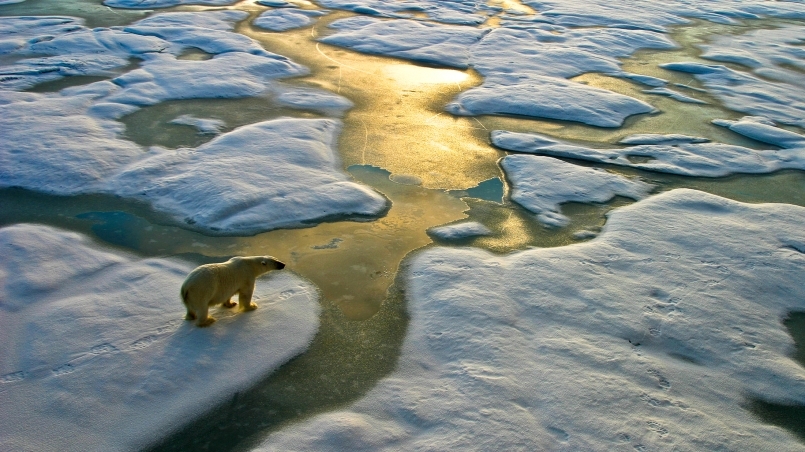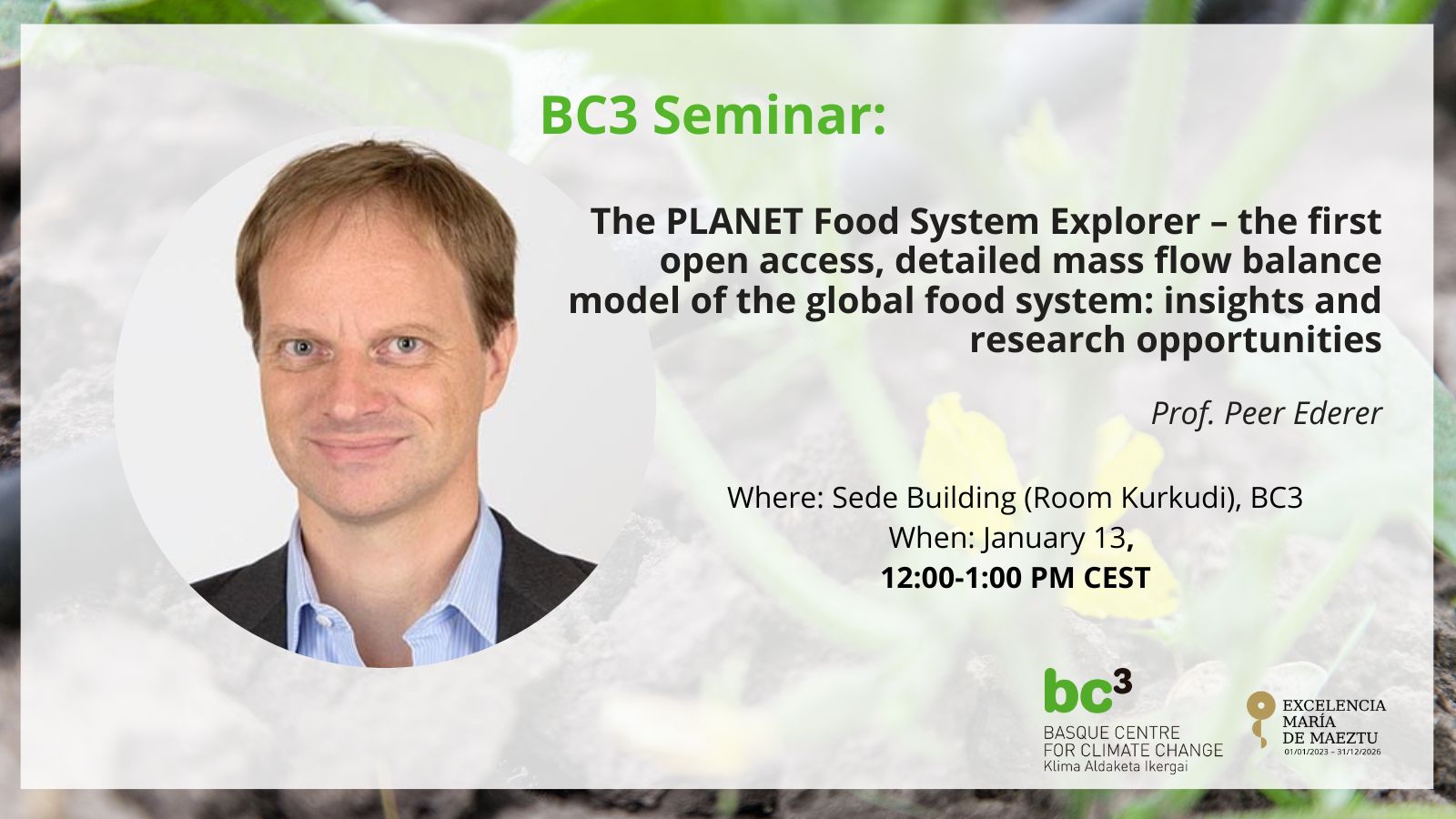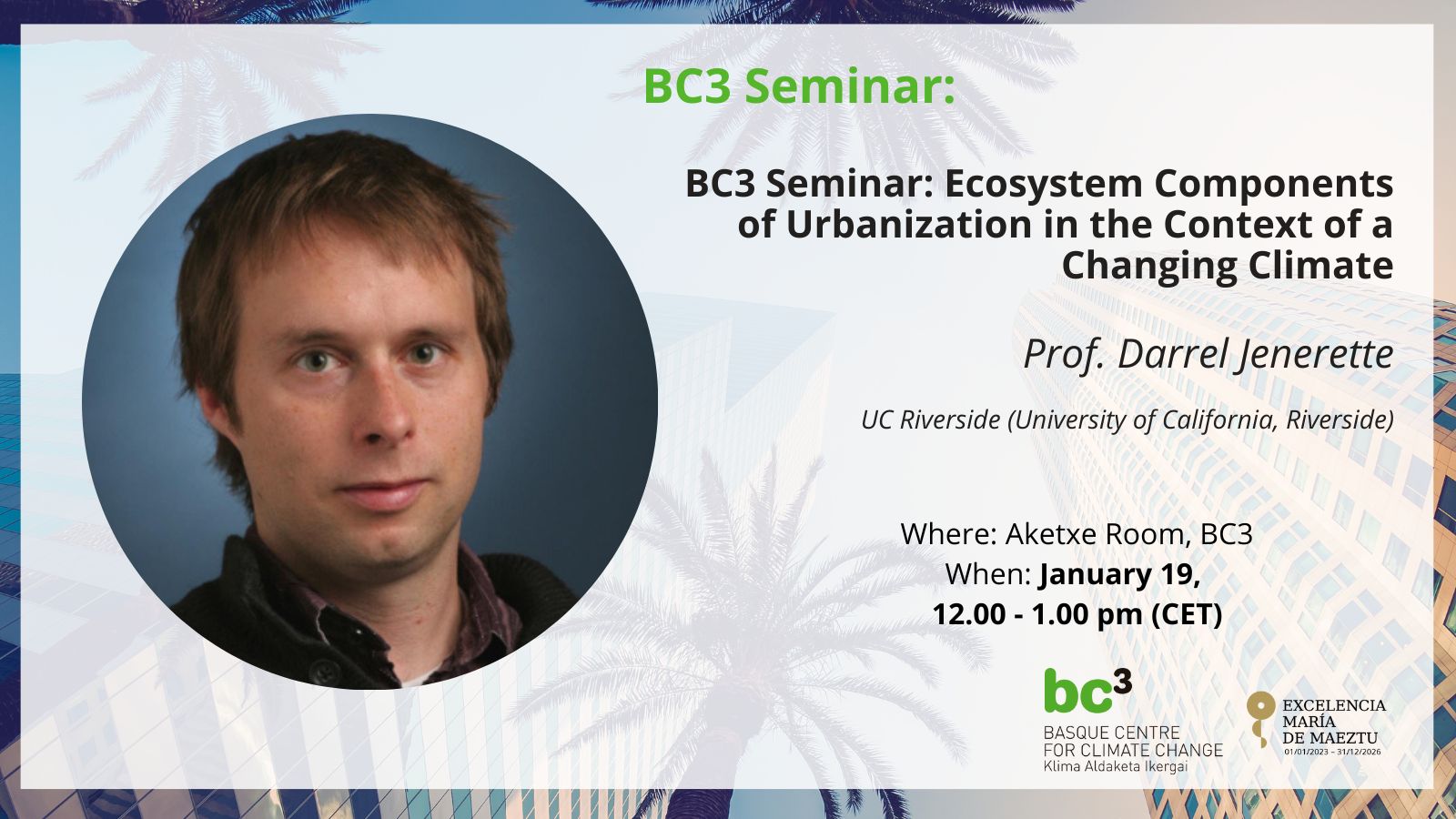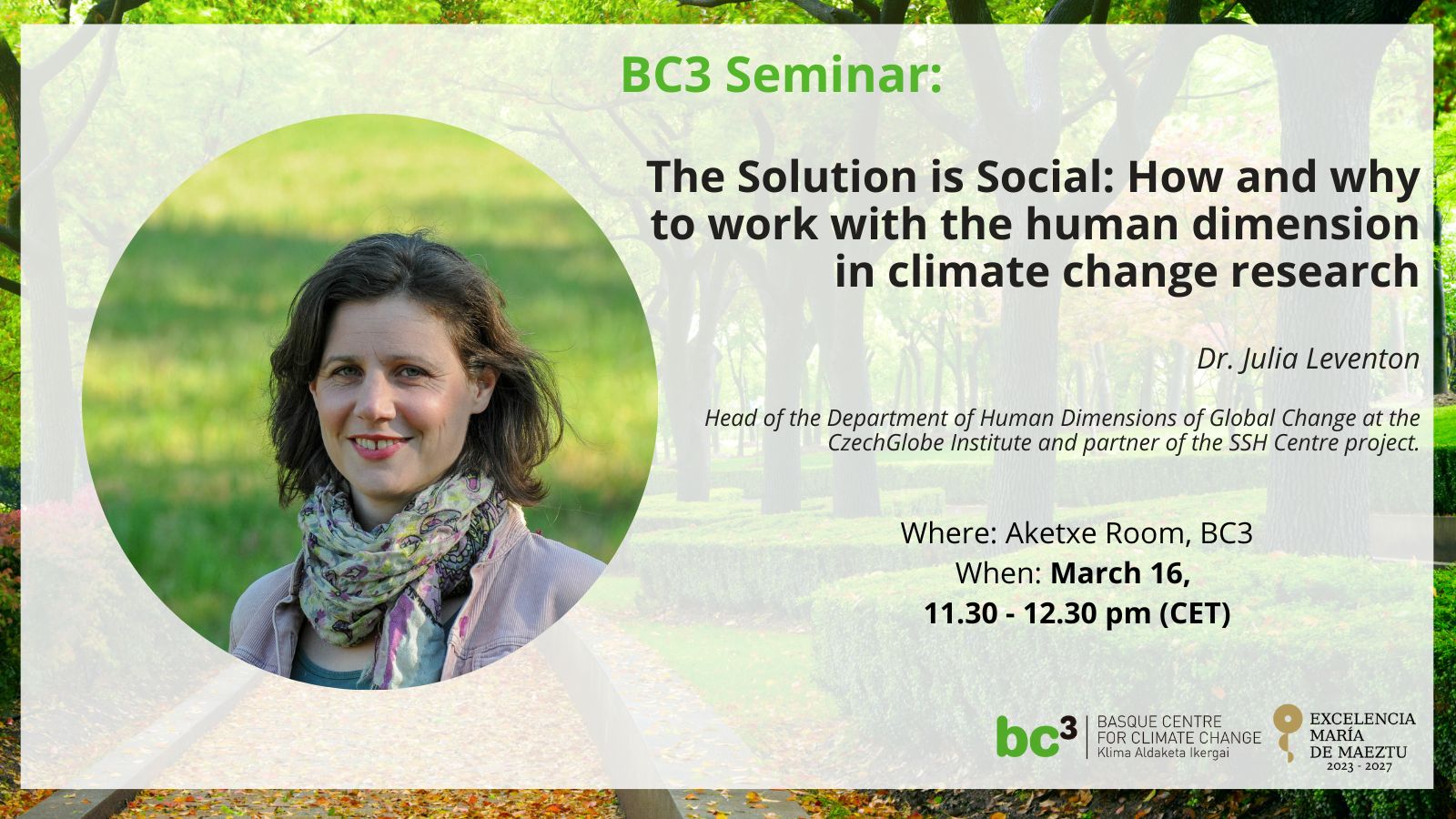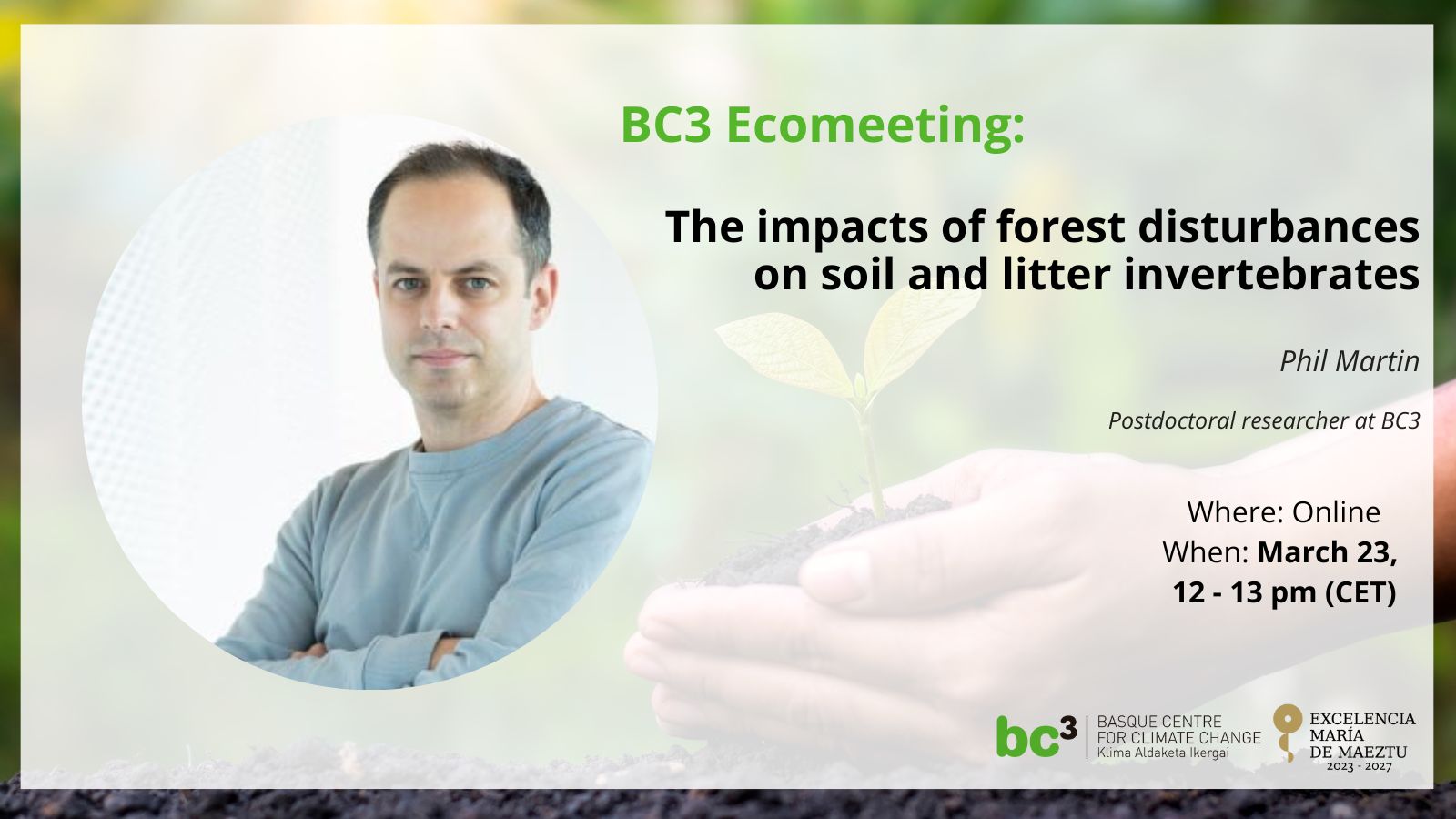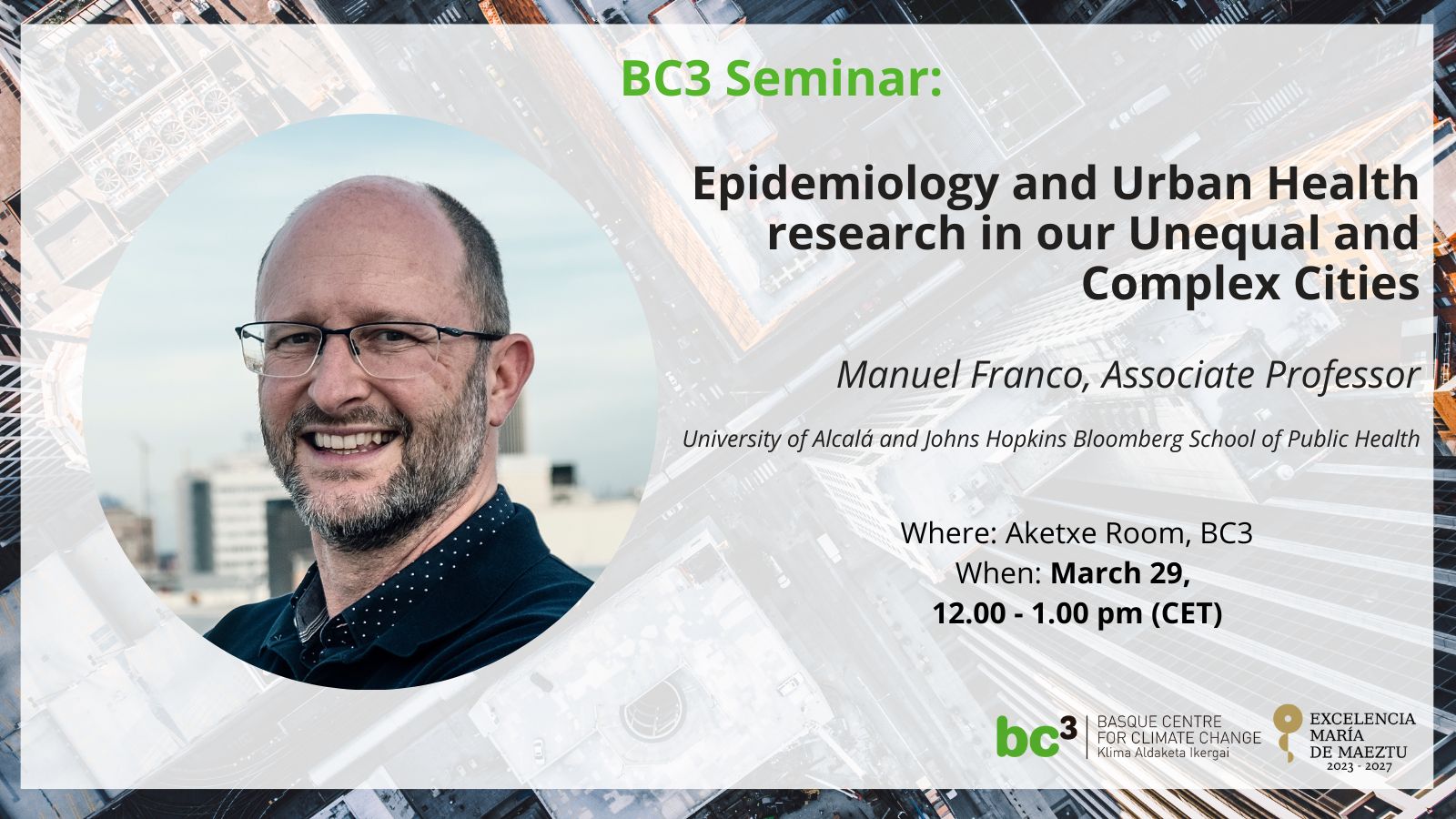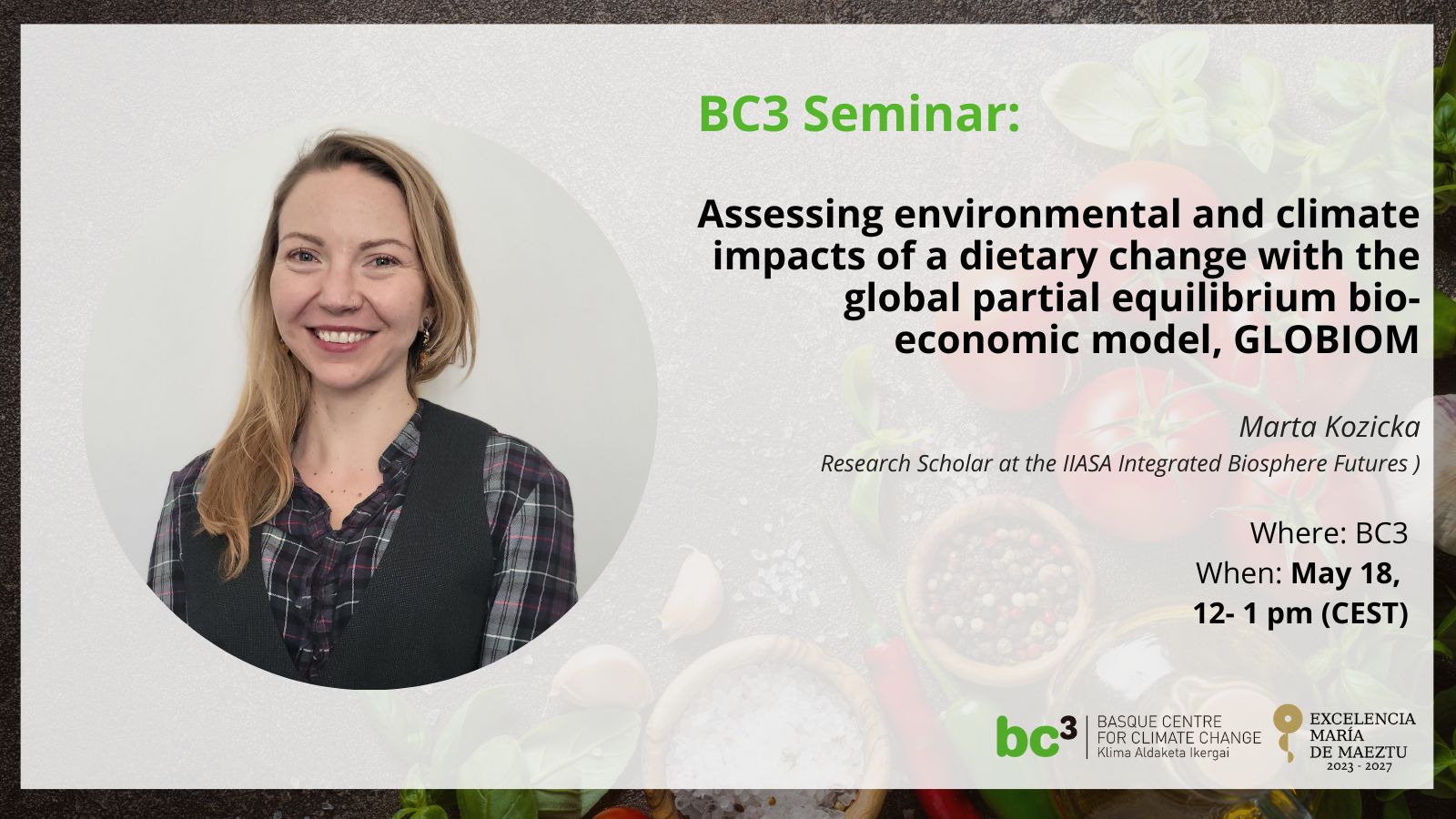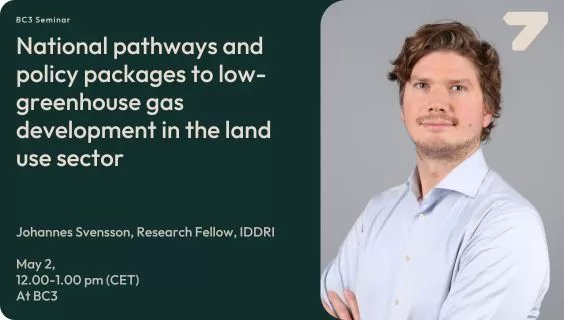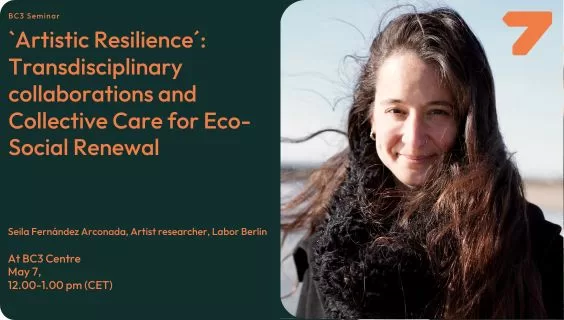UN Climate Change conference (COP27): Anything new?
BC3-Basque Centre for Climate Change Sede Building 1, 1st floor, Scientific Park of the University of the Basque Country, Leioa, Bizkaia, SpainHighlights of this summit will be analysed, including the agreements adopted, progress made and pending issues from the perspective of multiple actors: academia, the public sector, and the private sector.
The PLANET Food System Explorer – the first open access, detailed mass flow balance model of the global food system: insights and research opportunities
BC3-Basque Centre for Climate Change Sede Building 1, 1st floor, Scientific Park of the University of the Basque Country, Leioa, Bizkaia, SpainDr. Ederer will present on the workings of the PLANET Food System Explorer, its mass flow balances, and in particular the analysis work we do to assign the different biomass flows to the various species country by country.
Ecosystem Components of Urbanization in the Context of a Changing Climate
BC3-Basque Centre for Climate Change Sede Building 1, 1st floor, Scientific Park of the University of the Basque Country, Leioa, Bizkaia, SpainUrbanization is a major driver of global ecological changes. At the same time, ecological dynamics have a substantial impact on urban residents, which includes more than half of the worldwide population. To explore the reciprocal interactions between urbanization and ecological processes I use the Los Angeles, USA megacity region as a case study.
Tree species mixing as a strategy for adaptation to climate change
BC3-Basque Centre for Climate Change Sede Building 1, 1st floor, Scientific Park of the University of the Basque Country, Leioa, Bizkaia, SpainForest ecosystems are more and more threaten by the increasing biotic and abiotic disturbances triggered by global change. Adapting forest systems to climate change while maintaining their mitigation capacity is the main challenge to achieve a climate smart forestry.
The Solution is Social: How and why to work with the human dimension in climate change research
BC3-Basque Centre for Climate Change Sede Building 1, 1st floor, Scientific Park of the University of the Basque Country, Leioa, Bizkaia, SpainClimate change is caused by human activities, the human dimension is an obvious place to look to find solutions. Yet between 1990 and 2018, social science research received only 0.12% of global research funding into climate change (Overland and Sovacool, 2020). Where they are supported, social sciences and humanities are often placed in service to the research and practice agendas of physical sciences (Kania and Bucksch, 2020). Such under-representation is perpetuated, and carried into the policy and practice arena (Royston and Foulds, 2020), for example through IPCC (Lahsen and Turnhout, 2021).
Southern Voices on Research Geographies a workshop for transition-related Social Sciences & Humanities in Southern Europe
The EU has sought to stimulate research collaborations for decades to enhance synergies among European research communities and to support its own policy goals. However, disparities remain in terms of overall participation, roles within cooperative research and financial contributions received, particularly between the Western/Northern parts of Europe and Southern, Central and Eastern European countries. These differences can be seen in the Framework Programme as a whole, but are also visible across the transition-related thematic areas of climate, energy and mobility.
The impacts of forest disturbances on soil and litter invertebrates
BC3-Basque Centre for Climate Change Sede Building 1, 1st floor, Scientific Park of the University of the Basque Country, Leioa, Bizkaia, SpainHow do disturbances to forests like fires, droughts, storms, and pest outbreaks impact soil and litter invertebrates? We know lots about how these perturbations affect large, cute biodiversity, but this isn’t true for litter and soil dwelling invertebrates – despite their importance for soil functioning.
Epidemiology and Urban Health research in our Unequal and Complex Cities
BC3-Basque Centre for Climate Change Sede Building 1, 1st floor, Scientific Park of the University of the Basque Country, Leioa, Bizkaia, SpainUrban health research has greatly improved in quality, quantity, and depth over the past 20 years. Just in the last decade, we have seen a large increase in publications, scientific journals, conferences, books, and courses. This growth highlights the fact that there is a large and growing amount of knowledge that could be translated into policies to improve population health and reduce health inequities in cities worldwide.
Transformation Labs, socio-ecological innovation and imagination
BC3-Basque Centre for Climate Change Sede Building 1, 1st floor, Scientific Park of the University of the Basque Country, Leioa, Bizkaia, SpainTransformation Laboratories or T-Labs for short are participatory and innovation processes to foster social-ecological changes towards more sustainable pathways. The idea of transformations is a response to incremental adaptation strategies that aim at maintaining business-as-usual. In my presentation I will talk about my experience as part of the T-Lab project in the urban wetland of Xochimilco, in México city.
Assessing environmental and climate impacts of a dietary change with the global partial equilibrium bio-economic model, GLOBIOM
BC3-Basque Centre for Climate Change Sede Building 1, 1st floor, Scientific Park of the University of the Basque Country, Leioa, Bizkaia, SpainGLobal BIOsphere Management model (GLOBIOM, Havlík et al. 2014), developed at IIASA is a global economic land use model covering the sectors of agriculture, forestry and bioenergy. GLOBIOM can be used to explore various trade-offs and synergies around land use, ecosystem services and socio-economic objectives.

